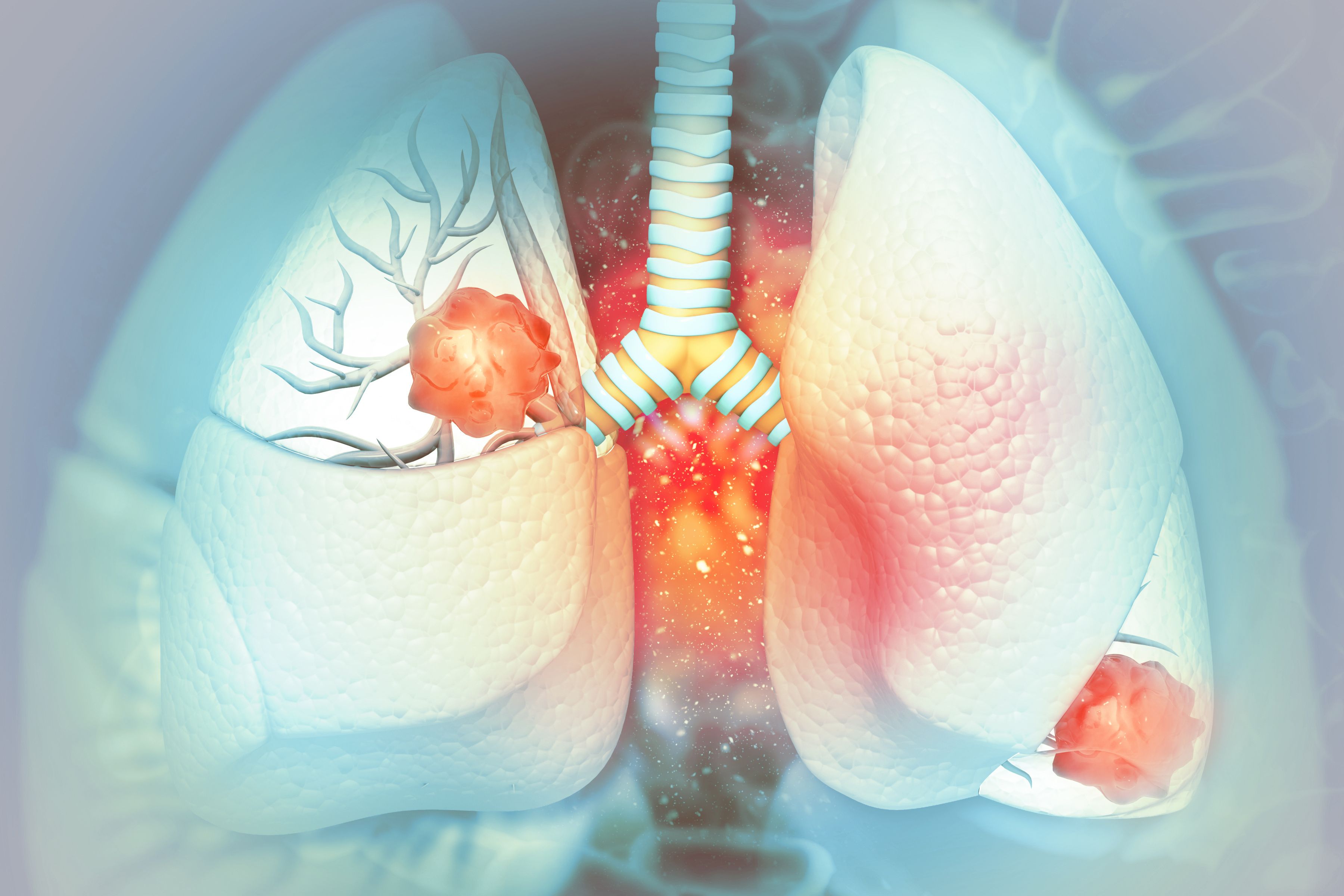FDA Grants Fast Track Designation to PT217 in ES-SCLC
PT217 is a first-in-class treatment targeting DLL3 and CD47 for patients with extensive-stage small cell lung cancer.
Illustration of lung Cancer: © Crystal Light - stock.adobe.com

- The FDA granted a fast track designation to PT217 for the treatment of patients with extensive-stage small cell lung cancer (ES-SCLC).
- PT217 is a first-in-class bispecific antibody targeting DLL3 and CD47.
- In 2022, PT217 was granted orphan drug designation.
PT217 has been granted fast track designation by the FDA for the treatment of ES-SCLC, according to Phanes Therapeutics.1
The process is designed to facilitate the development and speed up the review of drugs that treat serious conditions and fill unmet needs.
"PT217 has the potential to be a transformative treatment option for patients with SCLC,” said Ming Wang, founder and chief executive officer of Phanes Therapeutics, in a press release. "Now we have 2 fast track designations in our pipeline. Last month, PT886 was granted fast track designation for the treatment of patients with metastatic claudin 18.2-positive pancreatic adenocarcinoma. Both assets are from our optimized anti-CD47 bispecific antibody franchise and currently in clinical studies. We believe the optimized anti-CD47 bispecific antibody approach can unlock the full potential of the innate immunity in targeting solid tumors."
PT217 is a first-in-class native IgG-like bispecific antibody targeting DLL3 and CD47. In addition to ES-SCLC, PT217 is also being investigated in neuroendocrine carcinoma of the lung and extrapulmonary neuroendocrine carcinomas.
The designation is supported by the phase 1 SKYBRIDGE study (NCT05652686) evaluating the safety, tolerability, pharmacokinetics, and preliminary efficacy of PT217 in advanced or refractory cancers expressing DLL3.1 The study is recruiting patients across sites in Colorado, Massachusetts, Texas, and Virginia.
The study’s primary end points are to evaluate dose-limiting toxicities, the maximum tolerated dose, the recommended phase 2 dose (RP2D), and safety. Secondary end points include preliminary efficacy and pharmacokinetics. Disease control rate is an additional exploratory end point.
The study is comprised of dose-escalation and dose-expansion phases. The dose-escalation phase will establish the RP2D, and the dose-expansion phase will include 2 cohorts. One cohort will receive the RP2D, and the other will receive 1 dose level lower.
Patients must have measurable disease by RECIST v1.1, an ECOG performance status of 0 or 1, adequate organ function, resolution of adverse events from prior therapies, and a life expectancy of at least 3 months. Patients who are pregnant or lactating, have autoimmune disease, have a known concurrent malignancy, or have uncontrolled hypertension are not eligible for participation in the trial.
The study has an estimated enrollment of 52 patients and an anticipated completion date of June 2025.
REFERENCES:
1. Phanes Therapeutics' PT217 granted fast track designation by the FDA. News release. Phanes Therapeutics. April 8, 2024. Accessed April 9, 2024. https://tinyurl.com/2zstzpmb
2. A phase 1 study of PT217 in patients with advanced refractory cancers expressing DLL3 (the SKYBRIDGE study). ClinicalTrials.gov. Updated January 29, 2024. Accessed April 9, 2024. https://clinicaltrials.gov/study/NCT05652686
Liposomal Irinotecan Shows Comparable Efficacy With Topotecan in Relapsed SCLC
June 18th 2024While the primary end point of overall survival was not met in the phase 3 RESILIENT study, the overall response rate was 44.1% vs 21.6% with liposomal irinotecan vs topotecan in relapsed small cell lung cancer.
Read More